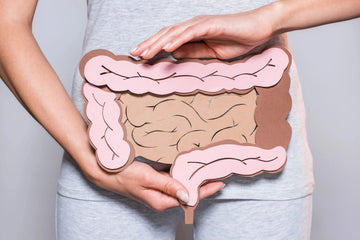A healthy gut is crucial for general well-being, as it not only regulates digestion, but also plays a central role in the immune system and the absorption of nutrients. Our intestinal flora, which consists of trillions of bacteria, contributes significantly to intestinal health. Here are some tips on how you can support your gut and keep your intestinal flora in balance.
1. High-fiber diet
Fiber is essential for healthy digestion. It promotes bowel movement and helps soften stools. Soluble fiber , which is found in oats, legumes, apples and flaxseed, is particularly important. Insoluble fiber , which is found in whole grain products, nuts and seeds, improves bowel function and helps prevent constipation.
• Tip : Include fiber-rich foods such as fruits, vegetables and whole grains in your daily diet.
2. Probiotics and prebiotics
Probiotics are live microorganisms that support the gut flora. They are found in fermented foods such as yogurt , kefir , sauerkraut and kimchi . Prebiotics, on the other hand, are food sources for the good bacteria in the gut. They are found in foods such as onions , garlic , bananas and artichokes .
• Tip : Combine probiotics and prebiotics for optimal support of your intestinal flora. Eating yogurt or sauerkraut every day and bananas as a snack are good approaches.
3. Drink enough water
Adequate fluid intake is crucial to regulate bowel movements and prevent constipation. Water ensures that the fiber in the intestine can swell well and the stool does not become too hard.
• Tip : Drink at least 1.5 to 2 liters of water daily to aid digestion.
4. Reduce stress
Stress can negatively impact gut health. The gut is closely connected to the brain, meaning emotional stress can affect digestion, potentially leading to symptoms such as bloating , constipation or diarrhea .
• Tip : Regular relaxation techniques such as yoga , meditation or breathing exercises can help reduce stress and promote intestinal health.
5. Exercise and sport
Regular exercise not only supports general well-being, but also intestinal function. Physical activity stimulates intestinal peristalsis , which improves digestion and prevents constipation.
• Tip : Try to walk, jog or do some other physical activity for at least 30 minutes every day.
6. Avoid highly processed foods
Processed foods such as fried foods , sugary products or convenience foods can disrupt the balance of intestinal flora. The high levels of sugar and unhealthy fats can promote the growth of harmful bacteria in the intestines.
• Tip : Reduce processed foods and instead focus on fresh, unprocessed foods such as fruits, vegetables, nuts and seeds.
7. Get enough sleep
Lack of sleep can have a negative effect on the intestines and affect the balance of the intestinal flora. A healthy sleep rhythm helps the body to regenerate and supports digestion.
• Tip : Make sure you get 7 to 8 hours of sleep per night to support your gut and your well-being.
8. Reduce alcohol and nicotine
Alcohol and nicotine can irritate the intestinal mucosa and disrupt the balance of intestinal bacteria. Long-term consumption can lead to inflammation in the intestines and negatively affect digestion.
• Tip : Reduce your alcohol consumption and avoid nicotine to protect your intestinal health in the long term.
Conclusion
Gut health plays a central role in overall well-being. A balanced diet, regular exercise, stress reduction and sufficient sleep are key strategies to promote a healthy gut. By paying attention to your lifestyle and incorporating healthy habits, you can improve your digestion and maintain the balance of your gut flora.





